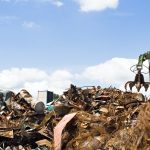When it comes to road tankers carrying combustible and flammable products, serious safety concerns emerge during the process of transportation. One of the highest risk areas is not when the vehicle is travelling the road (or rails). The most dangerous time for drivers and crew alike is when the tanker is loading or unloading. For a tanker loading up with such White Oil Products as petro, naphtha, gas oil and kerosene, places all at high risk.
Safety Concerns
When it comes to tanker loading and unloading, there are several individuals at risk. They include:
- The drivers
- Other associated personnel in the tank loading area
- Other road tankers present during the process
- The facilities
There is also one other concern. This is the environment.
Tanker Loading Risks
During tanker loading, the entire docking/loading area is at risk from several types of danger. These include:
- Fires – as a result of static electricity commonly generated during the loading process
- Explosions
- Falls – from loading platforms
There are also environmental safety concerns. Unskilled usage, human error or faulty equipment can result in the spillage of toxic chemicals into water and on land.
Tips to Address Tanker Loading Safety Concerns
When it comes to tanker loading safety issues, it is important to adopt a multi-prong approach. This includes looking at the tankers, the loading equipment, the facility and the individuals involved. It means looking at such things as driver training. Is the driver and anyone else involved in the process properly trained? Do they know the equipment and how to handle it correctly? When new equipment is involved, are they updated and feel confident enough to handle it?
The equipment needs to be designed for safe use. This must apply to such things as, bottom loading, a top loading arm or general purpose arms. While bottom loading is considered to be the safest form, make sure any top loading arms are as safe as possible. Do not leave things to chance. Invest in the best equipment possible.
In the case of stairs, self-levelling and folding stairs are available. They incorporate many safety features to reduce the high risks involved in tanker loading from the top. Purchasing such equipment, can help keep everyone on site safe.
One final component needs to be considered -in ensuring tanker loading safety – the tanker. It must be maintained in top condition. The driver, company and site must also ensure the compatibility of the tanker equipment with those of the facility. This in conjunction with all the other measures should go a long way in helping to reduce the incidence of tanker loading issues.








